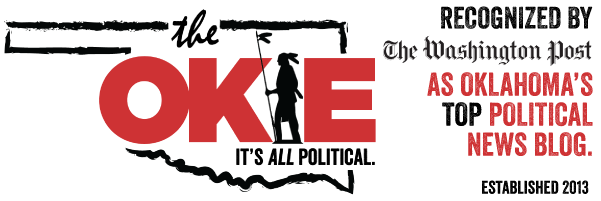Pruitt Presents Congressional Testimony On Oklahoma’s ObamaCare Lawsuit
From OK Attorney General Scott Pruitt’s Office:
In Case You Missed It
Today, Attorney General Pruitt testified before a congressional committee, chaired by Rep. James Lankford, regarding Oklahoma’s federal health care lawsuit. The hearing focused on the actions of the IRS and other federal agencies in implementing the Affordable Care Act. Oklahoma’s legal challenge argues that under the Affordable Care Act, the IRS is prohibited from imposing tax penalties on “large employers” in states that did not adopt state health care exchanges.
Click here to watch the hearing online (the AG’s opening statement starts at the 32-minute mark) or you can read his testimony below:
“Chairman Lankford, Ranking Member Speier, and Members of the Subcommittee,
Good morning, and thank you for inviting me to appear before you today to present concerns on the implementation of the Affordable Care Act, and the legal and economic implications of actions taken by the U.S. Internal Revenue Service, the Treasury Department and the U.S. Department of Health and Human Services.
This is a critical issue for Oklahoma and for every one of the 34 states that chose not to establish a state health care exchange – a choice that was provided to us by Congress and affirmed by the United States Supreme Court. Because of the serious ramifications facing our states, I appreciate the attention that this subcommittee is giving to these concerns with this matter.
First, I would like to be clear about my intentions today regarding health care policy and the law. My comments will not focus on the need for health care reform or the wisdom of the policy choices embodied in the ACA. Our responsibility as attorneys general is to preserve the rule of law; is to give meaning and affect to that which you have passed in Congress while protecting the rights and interests of our citizens.
When Congress passed the health care act, they provided states a choice. That choice was whether to establish a state health care exchange or to opt for a federal exchange. The ACA included with that choice a set of consequences and benefits that states had to consider. As the Chairman indicated, our policy makers did in fact go through that process in a very deliberative fashion. Among the outcomes of a state choosing not to establish a state exchange is a consequence of no subsidies flowing into that state. The law also provided a benefit of no penalties in the employers mandate arena for large employers.
Our Governor Mary Fallin and other state stakeholders thoughtfully and thoroughly reviewed the options provided them under the Affordable Care Act, and ultimately chose not to establish a state health care exchange. But after the decision was made, the IRS finalized a rule that would strip states of the main benefit of their choice – no large-employer penalty. Congress provided this choice to states, and now the IRS is attempting to take that away by rule.
The IRS is acting as a super legislative body in this capacity by enacting regulations that Congress did not authorize. Their actions conflict with the ACA, and when informed of this, the regulators ignored public warnings and concerns that pointed out the problem. In fact, many months before the rule went final in May 2012, the record was made as early as November 2011 with respect to these concerns.
The IRS does not have the authority to expand access to subsidies beyond what is clearly written in the law. As the Chairman indicated, that’s billions of dollars that will be flowing unauthorized by Congress. The regulation appears geared more toward enacting the agency’s own policies than faithfully following implementation of the law passed by Congress.
That is why in September of last year, I filed a lawsuit in the Eastern District of Oklahoma challenging the IRS rule and its lack of authority under the Affordable Care Act. Our unique position allowed us to lead the charge against rogue agencies misusing the law to advance their own agenda. As we have stated in our lawsuit, Oklahoma’s position has been clear from the very beginning – that the large-employer penalty not only violates the law when implemented in states without a state health care exchange, but cripples businesses with burdensome and onerous requirements and penalties.
For a medium-sized company, already struggling to meet the needs of its thousands of employees, the penalty equates to millions annually when only one of its employees qualifies for a subsidy under subpart A.
Until now, the Obama Administration has argued in court that the mandate is uncomplicated and easy, but its recent sudden reversal and delay of the mandate, clearly demonstrates and acknowledges that the large-employer mandate is in fact a complex, job killing and harmful mandate on businesses, and again Oklahoma is considered a large business under the statute.
Exactly where these burdens fall is a serious matter, and if the ACA exempts employers in states foregoing the establishment of their own exchange, that exemption should be recognized and enforced, and we appreciate the committee’s focus on that. These issues are of great importance to the Great State of Oklahoma because we value our state’s economic stability and growth, and the rule of law. Our fight continues on behalf of Oklahoma citizens to confront the Administration when it seeks to overreach its authority and circumvent the law.
We hope to obtain relief in this matter through the Courts, but we also welcome Congressional oversight being brought to bear on these agencies. I look forward to answering any questions you may have and I thank you for your time this morning, Mr. Chairman.”

